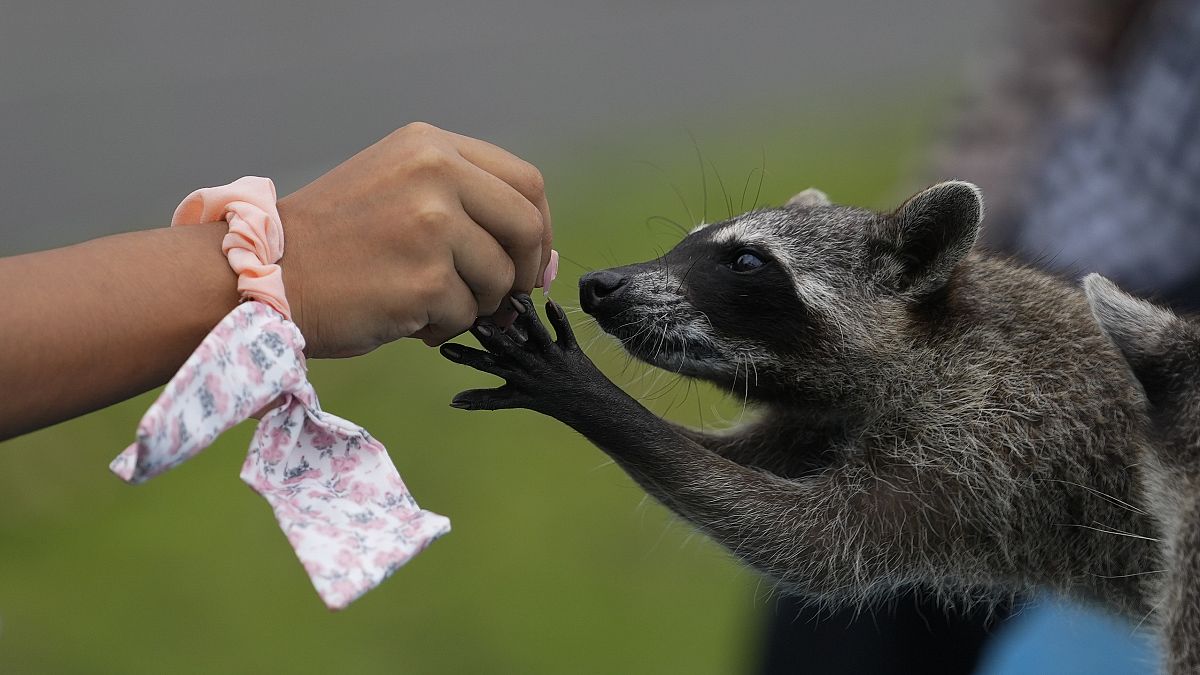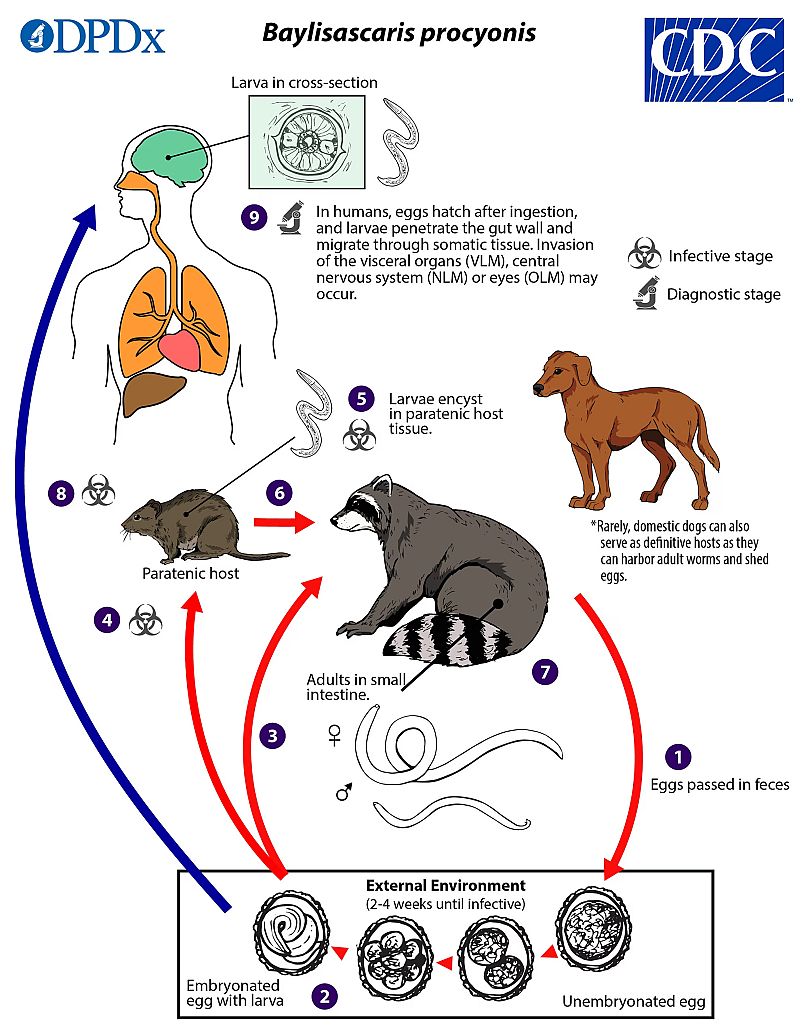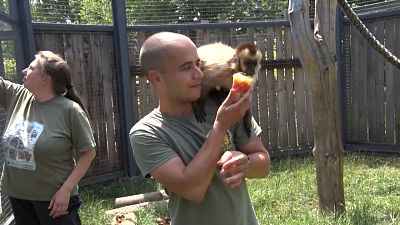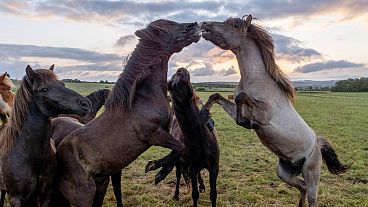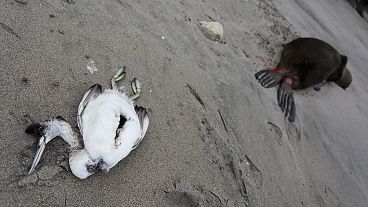The parasitic disease - which can be transmitted to humans - has already been identified in France, Germany, Luxembourg and the Netherlands.
Six cases of raccoon roundworm — a parasite that can cause neurologic and ocular disease in humans — have been discovered in Belgium for the first time.
The intestinal worms, known by their scientific name of Baylisascaris procyonis, were found in six raccoons in Wallonia, the French-speaking region's Health and Environment Department announced on 29 July.
According to the Dutch National Institute for Health and Environment (RIVM), the biggest risk group for the parasitic disease are young children aged between 1-4 years old, "as they tend to put foreign objects or soil in their mouths".
The worms are not fatal to raccoons but can be transmitted through their faeces: the parasite's eggs can be found in the animal's droppings, on its fur and in its direct environment, according to Wallonia's health department.
Belgium's raccoon population is estimated to be between 50,000 and 75,000.
It's not just Belgium that's been affected — the parasite has also already been reported in neighbouring France, Germany, Luxembourg and the Netherlands, the last of which has issued a stark warning about the parasite's spread across the country.
"It is suspected that without intervention, the raccoon will spread across a large part of the Netherlands," the RIVM said. "In addition, an unknown number of raccoons are still kept as pets in the Netherlands."
What can you do to steer clear?
Most Baylisascaris procyonis infections in humans are asymptomatic.
However, there are preventive measures you can take to avoid getting sick.
According to the Health and Environment Department of Wallonia, people must not approach or feed raccoons, children should be supervised to prevent them from eating soil, and dogs should be kept on a leash in forested areas.
It also advises people to make sure that any berries they pick have been taken from more than 50cm off the ground.












